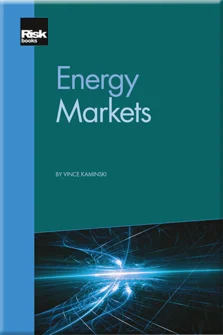Conclusions
Conclusions
Energy Markets: Introduction
Energy Trading and Marketing: The Macro View
Energy Trading: The Organisation
Weather Information in Energy Trading
Energy Markets: The Instruments
Energy Markets: Structured Transactions
Energy Markets: Exchanges
Energy Markets: Market Participants and Regulatory Developments
Natural Gas: Upstream
Non-conventional Natural Gas
Natural Gas Transportation and Storage
US Natural Gas Markets
International Natural Gas Markets
Oil Markets: Properties, Production and Reserves
Non-Conventional Oil
Oil Processing
Oil Transportation and Storage
Oil Pricing
Transactions in the Oil Markets
Electricity: The Basics
Power Generation
Transmission, Loads and Power Pools
Analytical Tools
Electricity Markets Transactions
Manipulation and Gaming of Energy Markets
Emission Markets
Coal Markets
Conclusions
As we completed the first part of the book and started working on these last few pages of conclusions, we thought briefly about another author, who had put down his plume one June night in 1787 and took a short walk under the acacias of his garden, from which he could see the countryside, bordered by a lake and mountains. “The air was temperate,“ he wrote, “the sky was serene, the silver orb of the moon was reflected from the waters, and all nature was silent.”11 Edward Gibbon, 1827, Memoirs of my Life and Writings (London, England: Hunt & Clarke), available at http://www.gutenberg.org/ebooks/6031. Gibbon is this author’s favourite writer, and every day we listen to a few pages of his books on Librivox whilst jogging. However, we realised that the completion of our work allowed for none of the satisfaction and pride that he must have experienced. As a matter of fact, we could feel nothing but envy. He was writing about a topic for which he had at his fingertips all the information available to the mankind at that time. No new facts would become available any time soon, barring the discovery of other written sources or archeological research. When this happens, it is over decades
Copyright Infopro Digital Limited. All rights reserved.
As outlined in our terms and conditions, https://www.infopro-digital.com/terms-and-conditions/subscriptions/ (point 2.4), printing is limited to a single copy.
If you would like to purchase additional rights please email info@risk.net
Copyright Infopro Digital Limited. All rights reserved.
You may share this content using our article tools. As outlined in our terms and conditions, https://www.infopro-digital.com/terms-and-conditions/subscriptions/ (clause 2.4), an Authorised User may only make one copy of the materials for their own personal use. You must also comply with the restrictions in clause 2.5.
If you would like to purchase additional rights please email info@risk.net











